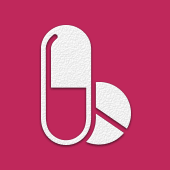
Immunosuppressants
You will need to take a daily mix of medications for as long as the donated kidney is functioning within your body. These medications are called immunosuppressants (they suppress your immune system) and are necessary to reduce the possibility that your immune system will attack the new kidney by thinking it’s an unwanted foreign organism. Our post-transplant nurse coordinator and transplant pharmacist will instruct you on all aspects of the medication, including how to look for signs of organ rejection.
Once you are discharged, it is imperative that you contact the transplant team before making any changes in your medication regimen, even when so recommended by another doctor. Our pharmacist will give you specific instructions regarding the type, frequency and side effects of each prescribed drug.

Infections
The downside of lowering your defenses is that you will be vulnerable to infections from sources you would typically have a resistance to. The primary symptom to look for is a high fever, but our nurse coordinator will teach you how to look for other signs of infection. If you suspect you have an infection, contact the transplant center immediately. Our team will keep the infection under control by administering medications.
To avoid infections, we ask you to follow these guidelines:
- Wash your hands after touching dirty objects, and before eating.
- Avoid exposure to people with infectious diseases.
- Don't touch feces from pets or other animals.
- Inform our transplant team if you're planning on traveling to another country so that we may check if there are epidemics that may affect you.
- Get annual flu-shots after your transplant, receiving only “dead virus” vaccinations.








